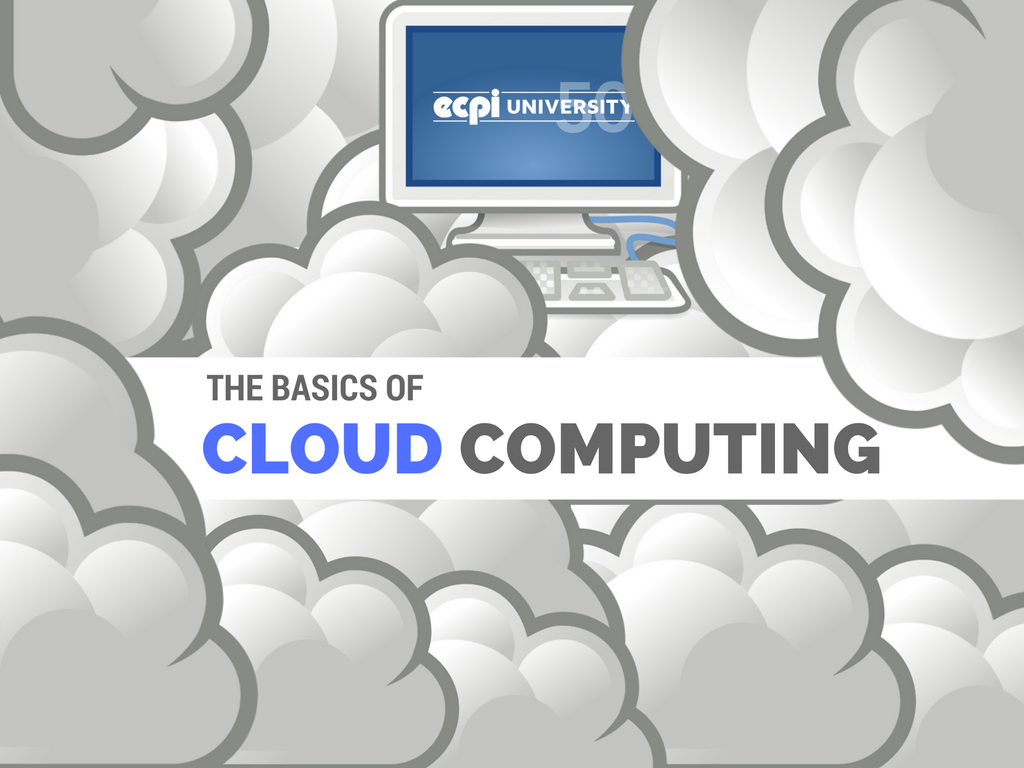Cloud Computing Basics for Beginners
Cloud computing is redefining computer engineering. A host of new job opportunities have arisen from the field. One of these jobs is the position of cloud architect. Here are some of the best practices followed by successful professionals in this field.
1. Building Scaleable Architecture
While designing a cloud, like anything else, it can help to plan ahead. Building a scaleable cloud means the resources, and access to those resources, are distributed over a host of servers. With effective design, a properly scaled cloud system improves the existing network's availability, performance, reliability and manageability by incorporating web applications that promote efficiency. This also helps by removing redundant factors which slow down the system.
2. Embracing Elasticity
A rigid cloud design can be a significant detriment in the long run. While creating a cloud system, it is important to incorporate features which allow for the system to be able to adapt to changes in the workload through changeable provisioning of resources in automatic response to external demands on the system. Elasticity is increasingly being favored over other, unchanging forms of cloud design, such as those used in grid computing.
3. Keeping Security Concerns in Mind
Cloud systems used by companies often carry sensitive information concerning the company's finances and resources about their clients, including personal details, which can cause great damage in the wrong hands. As such, it is essential to design a cloud which has the most up-to-date security features which are able to handle the latest cyber attacks and hacking malware the internet has to offer.
4. Optimizing Data Placement
Most of the existing data optimization algorithms only focus on individual factors, such as reducing the move of data, processing time, time of transferal, or cost. However, newer cloud models favor multi-objective data placement which uses particle swarm optimization algorithm in order to optimize the time and cost efforts invested in cloud computing.
5. Getting Creative with Job Assignments
Cloud design is a complex and multilevel process that needs to have several teams of designers working on it to bring it to fruition. Instead of following traditional practices of assigning specific tasks in succession, adopt a freer flowing style of task management with different teams of developers working in tandem for improved synergy within the group.
6. Communicating Effectively
Good communication skills are required to be able to understand the requirements for the cloud that the client company has in mind. You need to pay attention when the owners and clients talk and to be able to get your point across about the kind of final result they can expect for the work you do on their cloud system.
7. Encouraging a Collaborative Atmosphere
You also need to have a collaborative nature to manage the security of the cloud with the help of the company's cyber security team. Cloud creation requires long hours and many people working in tandem. In such circumstances, you need to be an active part of the team and extend support to other members as well.
8. Constantly Seeking to Learn
Includes knowledge of enterprise computing and the ability to make use of basic IT skills. You need to stay on your toes and research your job and all the latest technologies in your field in order to ensure a comprehensive, constantly updated view of the field. Attend conventions, take part in discussions, and research online to stay on top of the knowledge pile.
9. Taking Charge
You need effective leadership skills to be able to convince companies and stakeholders about the soundness of the blueprint you design for the company's cloud network. You need to be able to direct the cloud design team's energy in the right direction and discourage unproductive behavior in a fair and firm manner.
10. Developing Planning Skills
Planning and organizational ability means to be able to make and manage tasks for an entire team that needs to work together in order to fashion the cloud. Acquiring the ability to plan and then stick to that plan can be of great help in completing the work in a timely and efficient manner.
11. Analyzing the company's requirements
This will involve taking stock of the company and its products and services. You will have to get a feel of the kind of traffic that the company will handle over a period of time in order to design an appropriate cloud networking system.
12. Effectively Negotiating Licenses
If the cloud is private built for a single company, you only have to worry about managing the cloud for that business. However, if many companies are using the cloud, you have to negotiate the licensing deal between different companies in a manner that suits everyone's needs. This can be tricky, so be sure you have a solid plan in place before you propose any cloud sharing.
If you are excited about the field of cloud computing and want to make your mark, consider ECPI University to earn the needed educational qualifications for this position. With a Bachelor’s of Science and Information Science in Cloud Computing from ECPI University you could gain the skills and knowledge needed to become a part of this thriving industry. Contact a helpful ECPI University admissions advisor today to discuss your options.
It could be the Best Decision You Ever Make!
DISCLAIMER – ECPI University makes no claim, warranty, or guarantee as to actual employability or earning potential to current, past or future students or graduates of any educational program we offer. The ECPI University website is published for informational purposes only. Every effort is made to ensure the accuracy of information contained on the ECPI.edu domain; however, no warranty of accuracy is made. No contractual rights, either expressed or implied, are created by its content.
Gainful Employment Information – Cloud Computing - Bachelor’s
For more information about ECPI University or any of our programs click here: http://www.ecpi.edu/ or http://ow.ly/Ca1ya.




